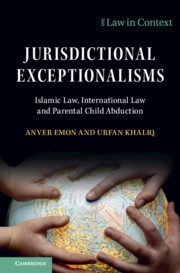The Hague Convention of 25 October 1980 on the Civil Aspects of International Child Abduction is a multilateral treaty that seeks to protect children from the harmful effects of abduction and retention across international boundaries by providing a procedure to bring about their prompt return. The ‘Child Abduction Section’ provides information about the operation of the Convention and the work of the Hague Conference in monitoring its implementation and promoting international co-operation in the area of child abduction. There are currently 58 member countries and 22 non-member countries. Australia signed the Convention five years after its introduction. The Family Law (Child Abduction) Regulations 1986 enshrined in Australian law the principles espoused in the Convention which came into force in 1987. The Regulations are to:
(a) secure the prompt return of children wrongfully removed to or retained in any contracting state, and
(b) ensure that rights of custody and access under the law of one contracting state are effectively respected in the other contracting states.
This paper shows that the failure of Family Courts to take account of the effects of their actions on the development and best interests of children whose return is secured can add to the psychological abuse of those who were removed from their home countries to avoid sexual abuse and violence. It suggests that the exceptions in the regulations that allow a child to remain in the new country with the primary caregiver are being ignored.


